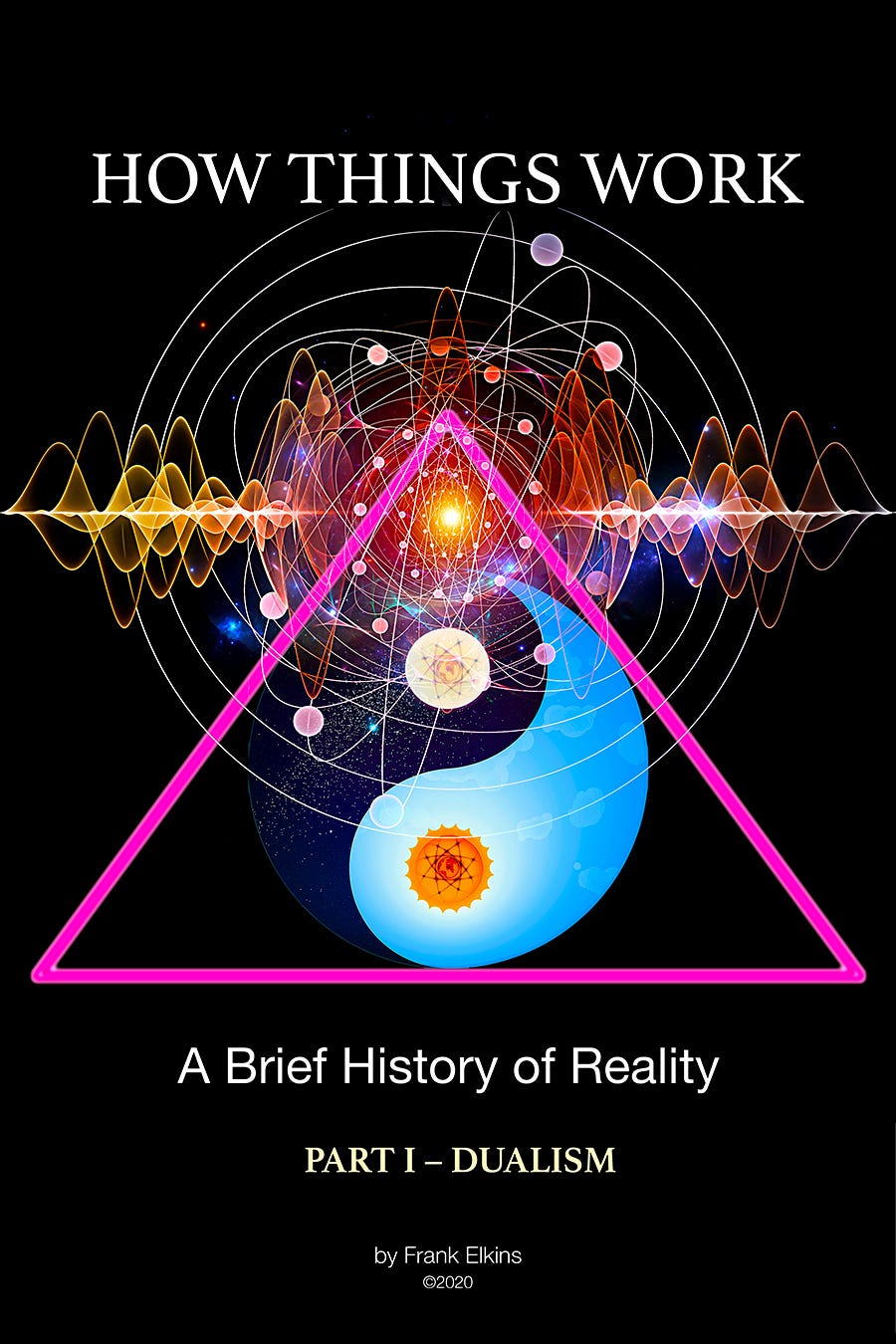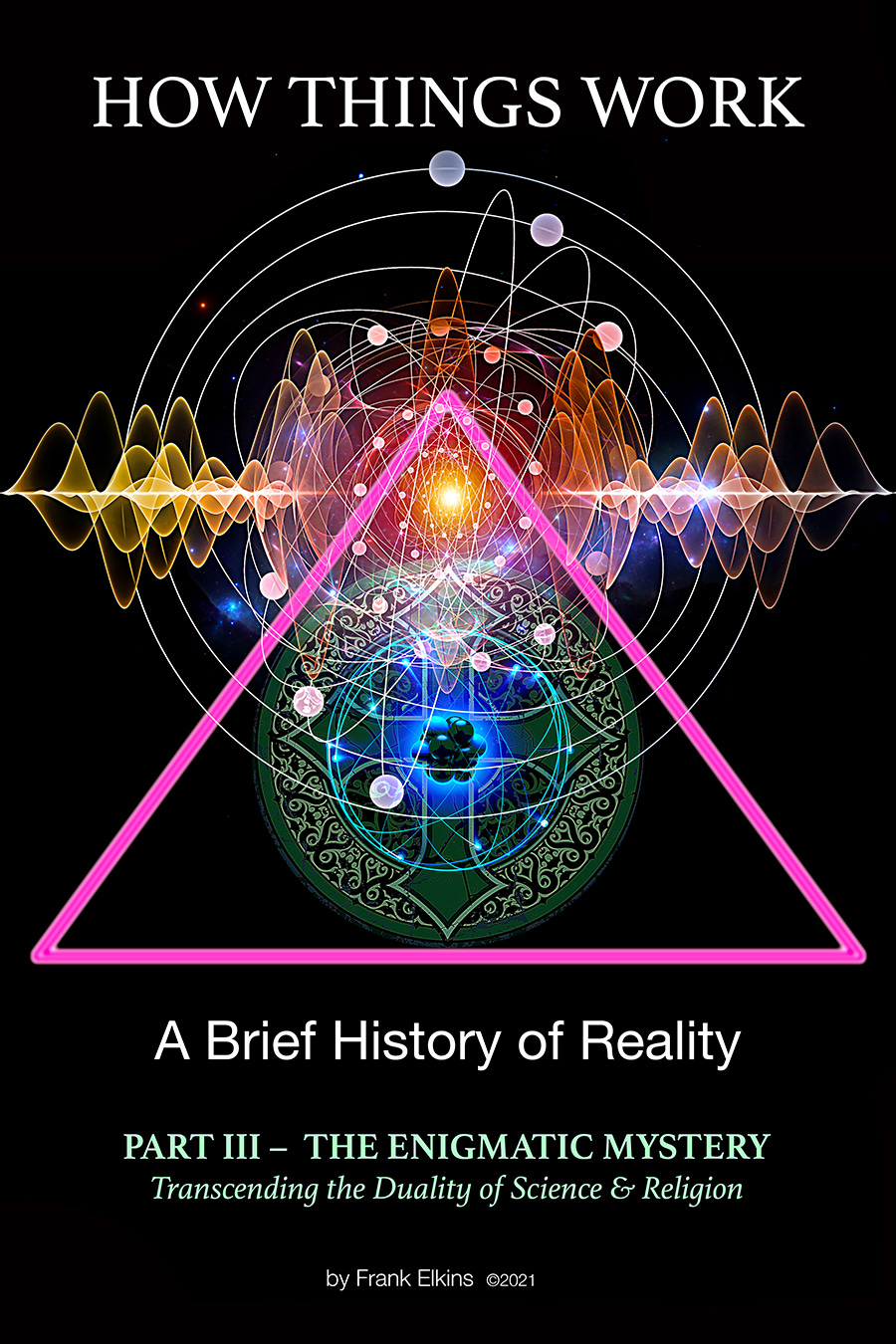How Things Work – A Brief History of Reality
Book I – Dualism (Western Virtues Part 1)
Be A Part of the Conversation!
Tuesday, November 30, 2021
“A dream doesn't become reality through magic; it takes sweat, determination and hard work.” – Colin Powell
PREFACE
Welcome Everybody!
In Taoism, human interaction regarding reality is based on balancing, or transcending, the opposite forces of nature. This leads to a “balanced” life and perhaps even enlightenment, a total understanding of reality through direct experience. This same principle is expressed in Western civilization through a moral system known as Virtues. Virtues represent the balance point between opposites that result in the best possible outcome in any given situation. Virtue reflects a direct clarity and understanding of reality.
The idea of virtue and its role in ethical behavior comes from Greek philosophy. Plato, who lived in the fourth century B.C., identified four virtues that have become influential concepts in Western civilization. Now known as the four cardinal virtues, they are wisdom, courage, moderation and justice. He wrote about these virtues in the "Republic," a Socratic dialogue on political theory. Other philosophers have argued that the four virtues provide the basis for all aspects of moral character. Aristotle, a student of Plato, expanded the concept by including additional virtues, as did Christian theologians.
– Shannon Leigh O’Neil, What Virtues Were Important to the Ancient Greeks
According to Plato, there is a simultaneous hierarchy and interconnectedness between the four Cardinal Virtues. A just and reasonable society cannot be maintained without them. They formulate the blueprint for Western civilization.
“…wisdom was considered the most essential of the four virtues by Plato.”
Wisdom, or prudence, is directly related to the human potential for good, or accurate, judgement. Utilizing knowledge, reason and experience, good judgement reflects the ability to differentiate and choose between right and wrong, or good and evil. Good judgement flows directly from the faculty of wisdom. Known as the “virtue of reason” wisdom was considered the most essential of the four virtues by Plato. Being a virtuous human being was not possible without the faculty of reason, which serves as the foundation of all other virtues. Wisdom was seen as the most important virtue in a leader or ruler by the ancient Greeks.
“…the soldier personified the virtue of courage through heroism.”
Courage, or fortitude, reflects the ability to deal with fear, danger, intimidation, or any difficult or uncertain situation. Courage is the ability to face and interact with the challenges of life. Considered a particularly strong “military virtue,” it is important to remember that both Plato and Aristotle held military positions of high regard. In ancient Greece, the soldier personified the virtue of courage through heroism.
“Without moderation, human beings are driven into ruin by their desires and extremes.”
Moderation, or temperance, represents the quality of self-control and self-discipline. Between the extremes of abstinence and over-indulgence lies the sobriety of moderation. Without moderation, human beings are driven into ruin by their desires and extremes. Complete and total abstinence could also be seen as extreme. Understanding the importance of moderation stems directly from the virtue of wisdom. One tends to lose their reason and wisdom when gorging in self-gratification and personal desire.
“…societies maintain order through justice, and therefore only just people are capable of creating just societies.”
Justice is the result of the proper application of the previous three virtues. Justice represents the ability to be reasonable and fair when making decisions that affect other people. Plato believed that a person becomes “Just” after understanding and practicing the virtues of wisdom, courage, and moderation. He argued that societies maintain order through justice, and therefore only just people are capable of creating just societies. Justice, therefore, is a main component of politics.
“The mastery of these four virtues culminate in the completeness of the human soul…”
Plato argued that society is ordered through justice and therefore justice was only possible when the human soul was also well ordered. The mastery of these four virtues culminate in the completeness of the human soul; ultimately reflected in the Greek Hero.
The essence of Greek Virtues is balance.
CONSIDERATION #7 – Western Virtues
Chapter 3 – Dualism & Western Virtues (Part 1)
Anybody can become angry – that is easy, but to be angry with the right person and to the right degree and at the right time and for the right purpose, and in the right way – that is not within everybody’s power and is not easy.
– Aristotle
Western culture and values were born in Greece and nurtured by the three great western philosophers Socrates, Plato, and Aristotle. The foundation of what we call "Western Virtues" is fundamentally based on dualism. As part of their investigation into the nature of the world and how human beings fit into it, they proposed a list of virtues considered necessary for a full and successful life. These virtues represented more than just mere habit or character tendency, for the Greeks virtue represented a balanced way of being. The goal for a Greek who truly understood the nature of the world was to become virtuous, not just act virtuous.
“Being virtuous meant having the inherent ability to balance options and choices within any given situation and make the best decision for that particular context.”
The Greeks saw virtue as being manifested through the qualities of achievement through excellence, developing practical (moral) wisdom, and using this achievement and wisdom to flourish in the world. Being virtuous meant having the inherent ability to balance options and choices within any given situation and make the best decision for that particular context. The Four Cardinal Virtues are Wisdom, Justice, Fortitude, and Temperance. From these Cardinal Virtues follow the moral virtues of Courage, Liberality, Magnificence, Magnanimity, Proper Ambition, Truthfulness, Wittiness, Friendliness, Modesty, and Righteous Indignation. Virtues exist precariously between two extremes of disaster which must be perfectly balanced at all times.
“A virtuous human being is perfectly balanced and acts out of that balance without thought or personal consideration.”
For the Greeks, virtue represented the exact equilibrium between excess and deficiency. For example, an excess of the virtue courage leads to rashness, whereas a deficiency of courage results in cowardice. Therefore, a virtuous person maintains courage without acting recklessly or impulsively while also maintaining strength and decisiveness. A virtuous human being is perfectly balanced and acts out of that balance without thought or personal consideration. Thus, there were three possible states of human existence and experience, two states of unbalance which led to disaster, and one perfectly balanced existence between the two. The Greek Virtues represented this balance and served as tools for reaching this balanced state.
POSTSCRIPT
Virtues embody the Western perspective related to balancing the opposite extremes of dualism, similar to how Taoism reflected the balance of yin and yang in Eastern tradition. However, the West’s more active approach to dualism became epitomized in the actions of the individual hero, as opposed to the non-action of the egoless monk of the East. More importantly, it led to a pursuit for individual excellence in all matters; particularly in recognizing and manipulating the abstractions related to intelligence and reason.
Next week we will consider how these virtues directly led to the Age of Reason, or The Enlightenment, and the founding of the United States of America.
All Three Books Including “Part-3 The Enigmatic Mystery” are Now Available Exclusively through BooksNotOnAmazon.com



